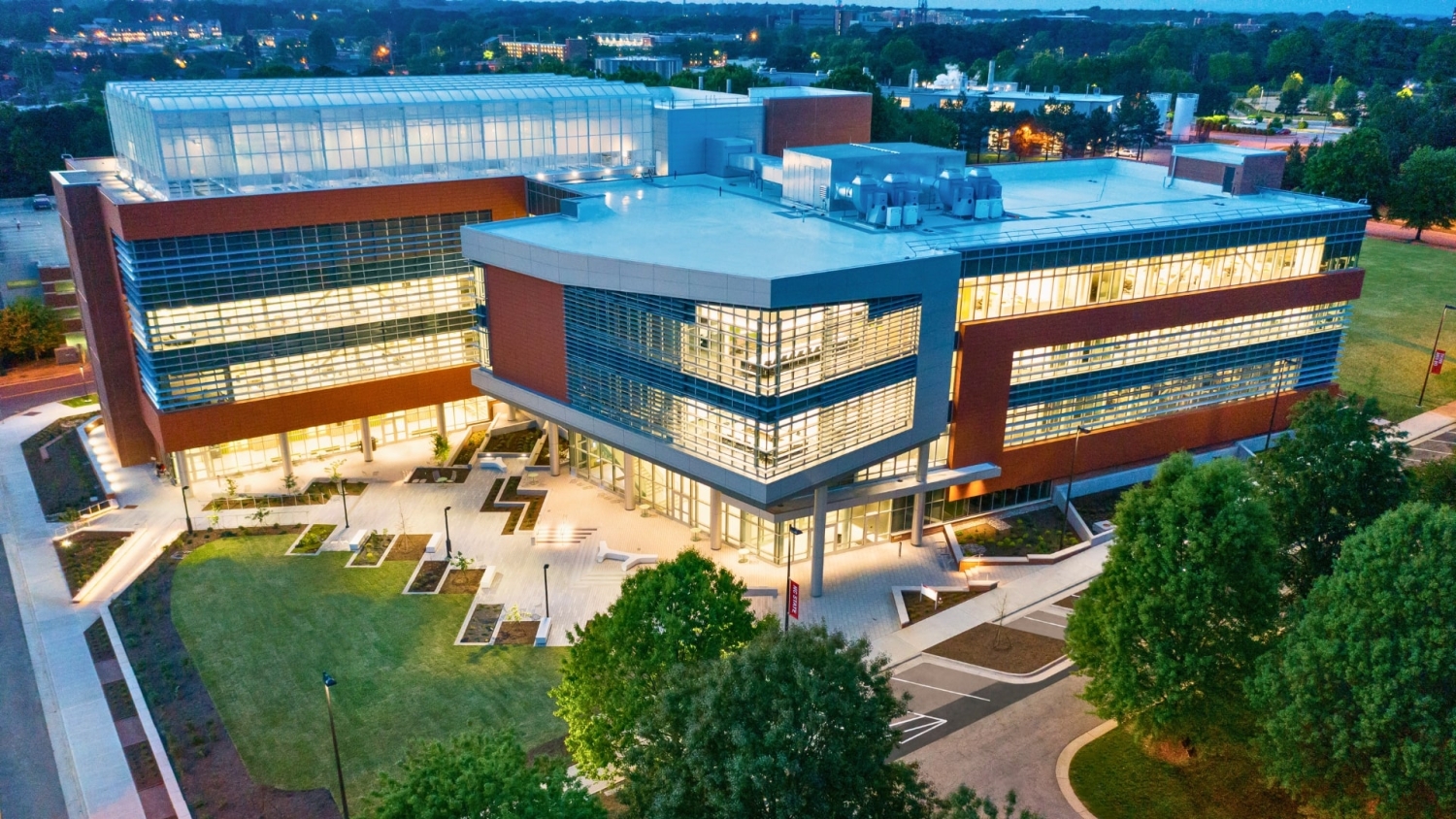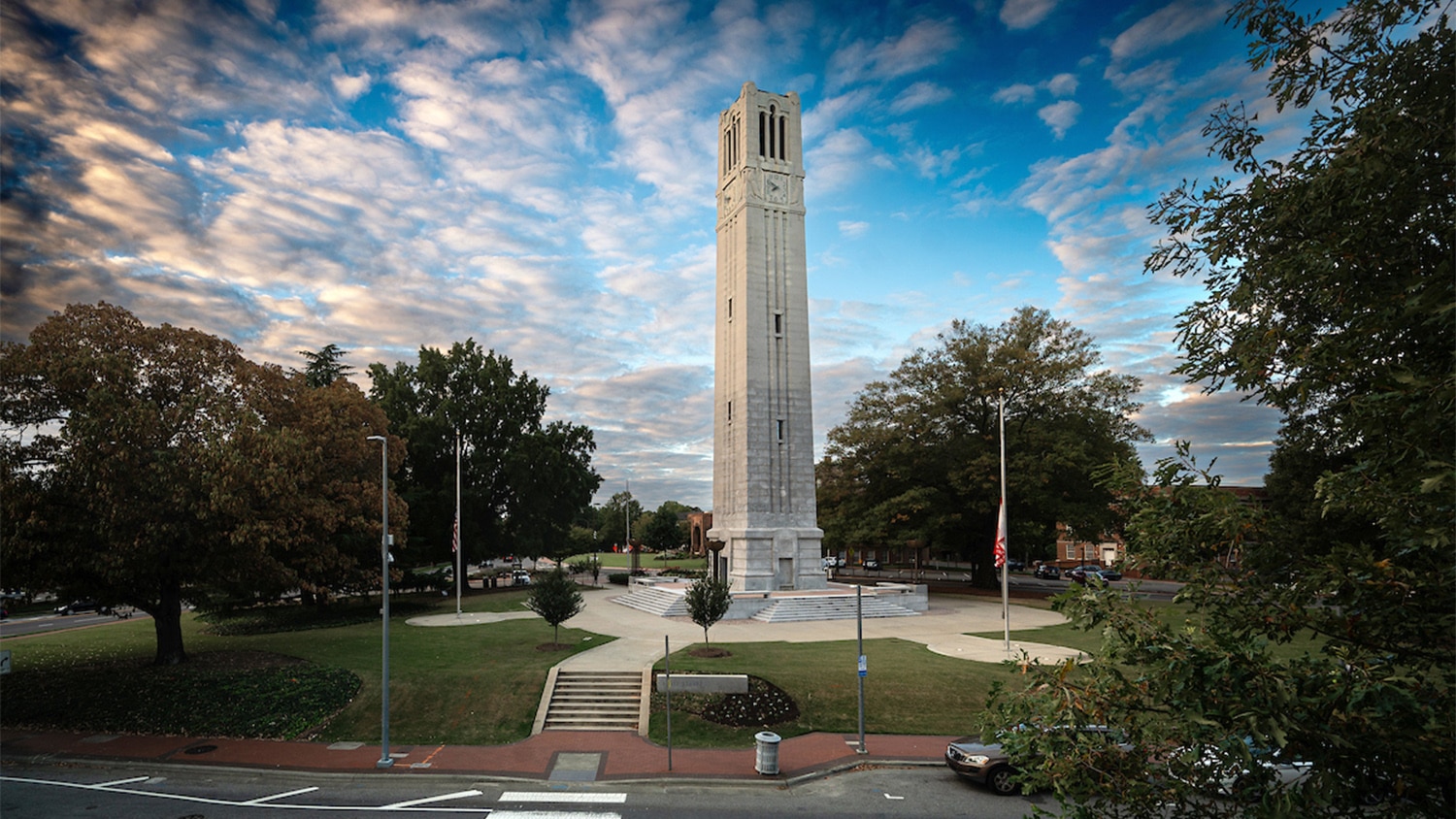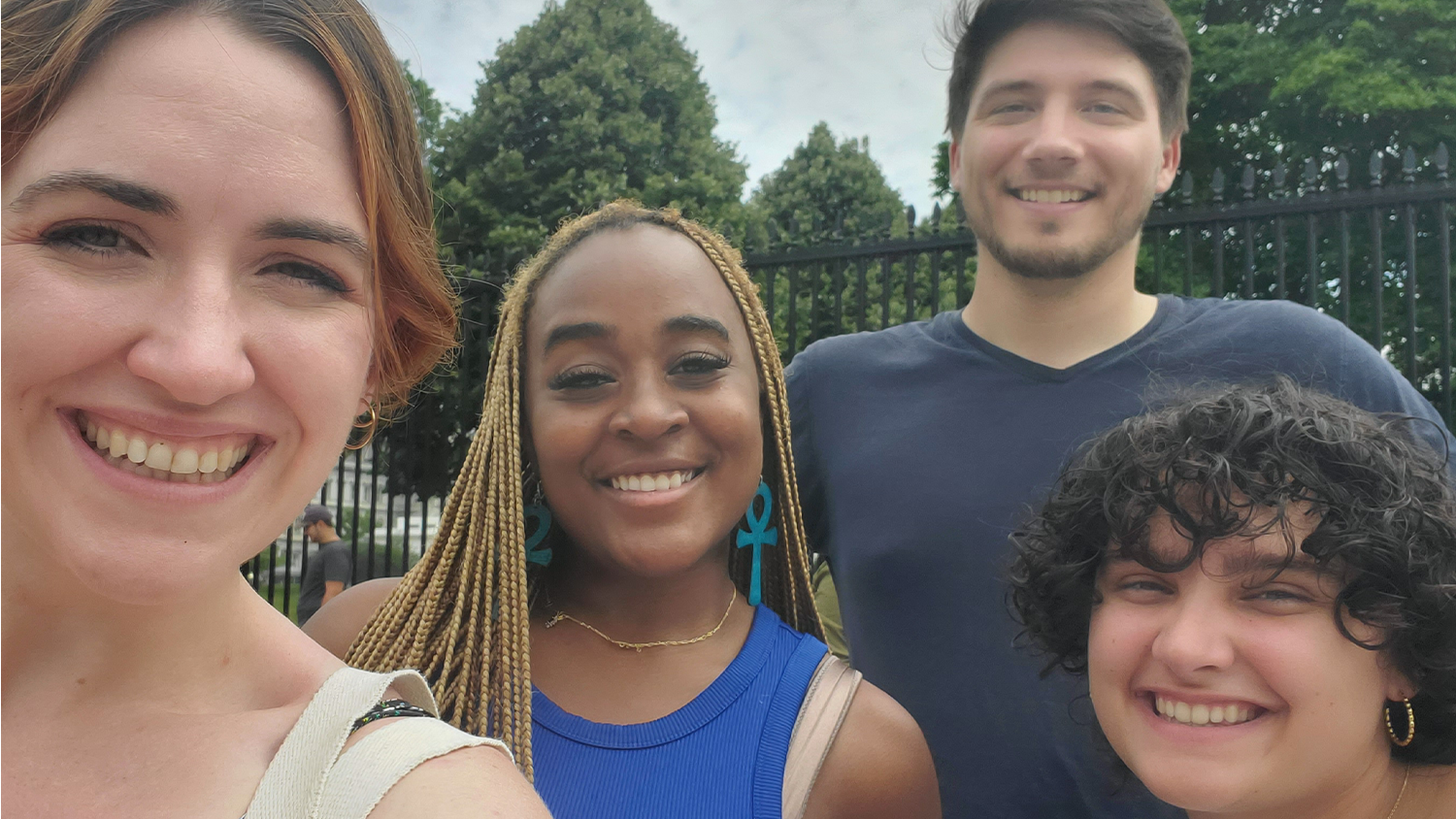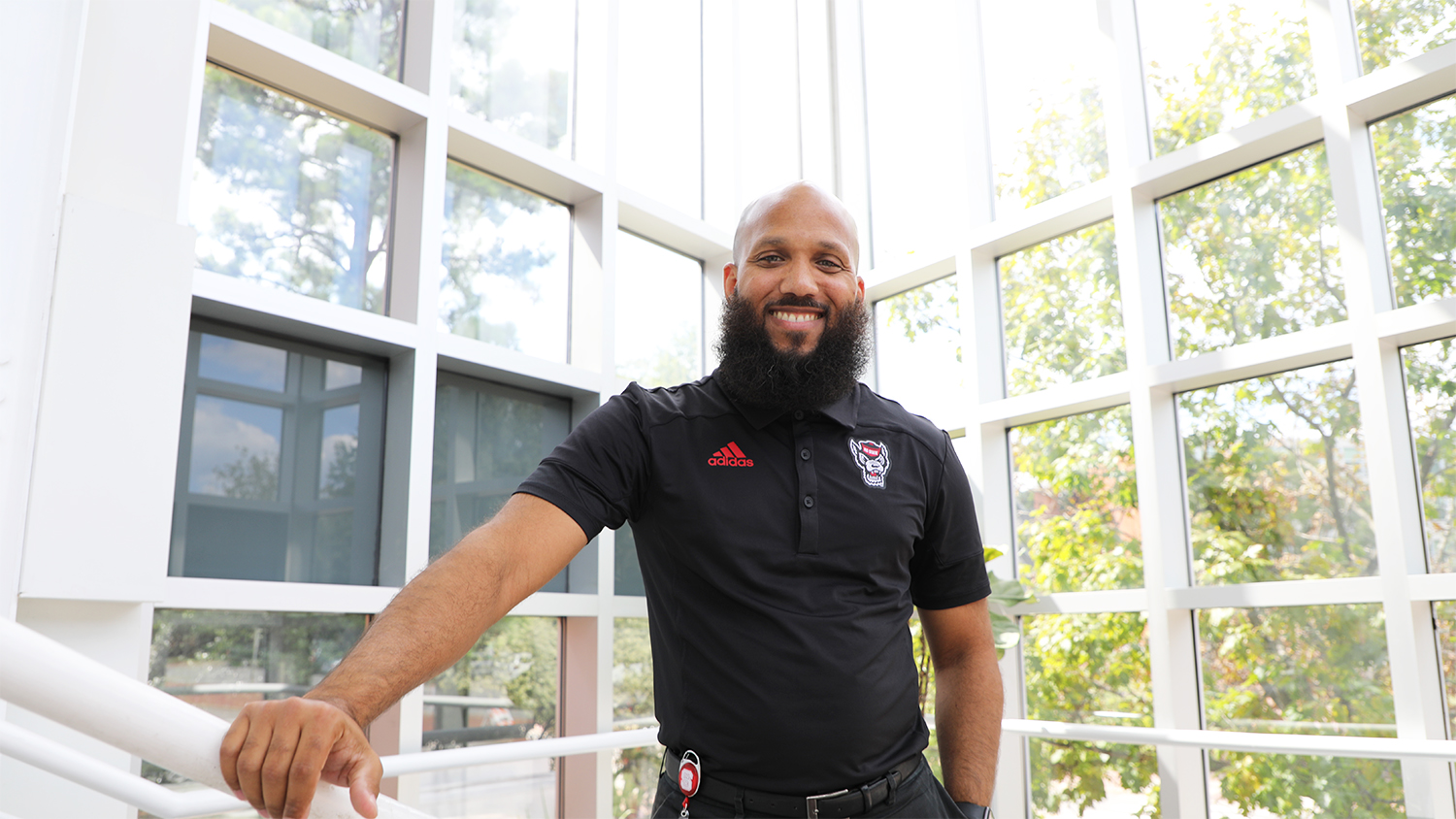In March 2023, Linda Trolinder created the first named graduate student endowment for the N.C. Plant Sciences Initiative in her mother Norma’s name. Norma is a pioneer in the plant sciences, having built a career as a preeminent cotton breeder in Texas. Linda is herself a leader in the plant sciences with a current role as the Senior Vice President of Research and Development of Field Crops, Seeds, and Traits at BASF. Together, this powerful mother-daughter duo co-founded a company together as Norma continued to patent her genetic cotton engineering technology.
The Norma L. Trolinder N.C. Plant Sciences Initiative Graduate Student Endowment has just been awarded to an inaugural group of four highly qualified NC State students selected from a large and competitive applicant pool. Each student is awarded $4,000 to cover graduate student fees and supplement the cost of tuition, research funding, conference fees, professional memberships, research and conference travel, and other enhancements to the graduate experience.
“We are extremely grateful to Linda, Norma and the Trolinder family for having established this endowment, which allows us to provide meaningful support to our students. Our diverse and talented group of students comes from a variety of scientific backgrounds to help solve the most pressing food security and environmental issues of our time. This graduate support will be instrumental in driving positive change in our agricultural system,” says Adrian Percy, executive director of the N.C. Plant Sciences Initiative.
Meet the four students selected as the first recipients of the Norma L. Trolinder N.C. Plant Sciences Initiative Graduate Student Endowment.

Sarah Cochran
College of Agriculture and Life Sciences
Department of Entomology and Plant Pathology
Ph.D. Student, ‘27
PI: Lina Quesada-Ocampo
NC State Vegetable Pathology Lab
Sarah Cochran’s Ph.D. dissertation will focus on developing cutting-edge water detection tools for Phytophthora capsici, a pathogen that can devastate many North Carolina crops such as cucumbers, watermelons, pumpkins and peppers. She will use CRISPR/Cas-guided diagnostics for its ability to quickly deliver sensitive, multi-layered results. These real-time, in-field diagnostic tests will allow farmers to make cost-effective decisions based on detailed information, including fungicide resistance in the detected pathogen population.
“Being an established member of a translational laboratory and a resident in the new Plant Sciences Building has provided an opportunity to collaborate with extension stakeholders, engineers, governmental agencies and industry partners alike to pursue my project,” Cochran says.
Under Lina Quesada-Ocampo, Cochran will collaborate with the Automation and Robotics Lab in the Department of Biological and Agricultural Engineering with full support from their company partners and commodity groups most affected.
“This unique research ecosystem will best position me to successfully develop water monitoring tools for P. capsici that support management decisions and ensure the long-term sustainability of water resources,” Cochran says.
After completing her Ph.D., Cochran intends to pursue a career as a professor for which she has already prepared herself by teaching an undergraduate introductory plant pathology course as well as recently completing the Inclusive Teaching Certification at NC State.
“The experiences, knowledge and relationships I will gain from receiving this endowment will allow me to take the information I gain during my graduate career and give back to my community, NC State and my future students,” Cochran says.

Anna Garrell
College of Agriculture and Life Sciences
Department of Plant and Microbial Biology
Ph.D. Candidate, ‘24
PI: Manuel Kleiner
The Kleiner Lab
While microbes are known to provide significant benefits to plants, microbial products have shown severe limitations. To address the lack of knowledge around what happens when new microbes are added to pre-existing environments, Anna Garrell is focusing her research on microbe-microbe and microbe-plant interactions to better understand how microbe communities interact with plant root systems.
“I am using mass spectrometry-based metaproteomics to identify and quantify the plant and microbial proteins, which provide me insight into the metabolism and physiology of each,” Garrell says.
Garrell is collaborating with the Crook Lab in the Department of Chemical and Biomolecular Engineering and with the Sozzani Lab in the Department of Plant and Microbial Biology to use the Cellular and Molecular Imaging Facility in the Plant Sciences Building to visualize the spatial organization of microbes within plant roots.
“I believe that this work […] will allow for a more targeted approach to the design and development of microbial products for use in increasingly sustainable agriculture practices,” Garrell says.
Garrell views microbial products as having immense potential to improve crop production in a sustainable manner, but still sees gaps in the discovery, design and development of such products. To address this gap, Garrell intends to join the agtech investment sector upon completing her Ph.D.
“Given the N.C. PSI’s interest in entrepreneurship and creating partnerships between multiple sectors, receiving the Norma L. Trolinder award will provide me with networking opportunities […] across academic, industry and government sectors,” Garrell says.

Weilong He
College of Agriculture and Life Sciences
Department of Biological and Agricultural Engineering
M.S. Student, ‘25
PI: Lirong Xiang
Automation and Robotics Lab
Weilong He’s research has centered on three projects during his master’s program at NC State. He has developed a maize leaf azimuth angle analysis that streamlines data collection and analysis. This technology optimizes light interception and photosynthesis in maize plants so breeders can reduce breeding time and labor costs.
As a graduate advisor, He helped his team secure first place in the beginner division of the 2023 American Society of Agricultural and Biological Engineers (ASABE) Student Robotics Competition. Their innovative design featured a cotton-picking robot capable of automating the harvesting process and mapping cotton distribution.
“I am eager to explore further possibilities for automation-driven innovations in the field of plant science, just as Dr. Norma Trolinder continuously pursued advancement and progress in her chosen domain,” He says.
He also developed a spore trap to detect cucurbit downy mildew, a devastating disease affecting cucurbit plants, that efficiently captures airborne oomycete pathogen spores to enable early and accurate disease detection.
“My ultimate goal is to pursue a career in academia, where I can engage in research while imparting knowledge to students. I firmly believe that collective efforts have the power to make the world a better place. Becoming a Norma L. Trolinder N.C. PSI Graduate Fellow would bolster my dreams and support my journey in exploring new horizons in plant science,” He says.

Peiran Wang
College of Engineering
Department of Electrical and Computer Engineering
Ph.D. Student, ‘27
PI: Cranos Williams
EnBiSys Lab
Peiran Wang’s research marries advanced data analysis techniques with plant genomics to better understand the process of protein synthesis in plants. Wang is using machine learning
algorithms and computational methods to identify key genetic sequences responsible for specific proteins. Wang’s research has the potential to lead to the development of targeted interventions that enhance desired crop traits and modify plants that are better adapted to a changing environment.
“By employing machine learning methods to analyze agricultural data and decoding the genome’s influence on protein synthesis, my research exemplifies the convergence of these two fields,” Wang says.
With a strong engineering background that she applies to the plant sciences, Wang has witnessed how interdisciplinary thinking can create innovative solutions in the agricultural industry. She also understands the various barriers faced by those entering the plant sciences without traditional plant science backgrounds. Wang intends to bridge these disciplinary silos throughout her burgeoning career by communicating across diverse stakeholder expertise and creatively approaching challenges from multiple perspectives.
“As a recipient of this fellowship, I aspire to foster a supportive environment where novel ideas are embraced, diverse perspectives are valued and cross-disciplinary approaches are nurtured,” Wang says.
This post was originally published in Plant Sciences Initiative.
- Categories:



